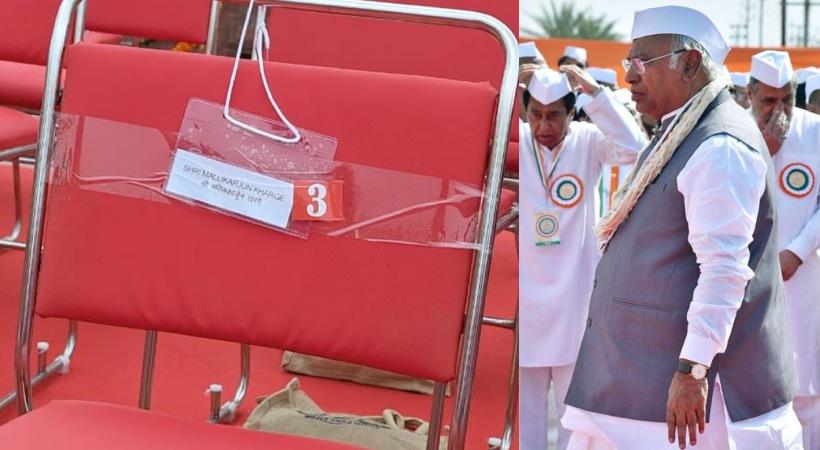
On the 77th Independence Day of India, an empty chair with the nameplate of Mallikarjun Kharge, Congress president, stood out among the seats at the iconic Red Fort, where Prime Minister Narendra Modi addressed the nation. Kharge’s absence marked a stark contrast in narratives as he chose to send a recorded message instead, raising concerns about the government’s actions and emphasizing the legacy of past leaders.
The Congress party attributed Kharge’s absence to his health, stating that he was “not feeling well.” Nonetheless, Kharge made his presence felt in a video message in which he paid homage to freedom icons such as Mahatma Gandhi, Jawaharlal Nehru, Sardar Vallabhbhai Patel, Netaji Subhash Chandra Bose, and other stalwarts who shaped India’s journey towards independence. He also highlighted the contributions of previous Prime Ministers from the Congress party, including Indira Gandhi, Lal Bahadur Shastri, Rajiv Gandhi, and Manmohan Singh, as well as BJP’s Atal Bihari Vajpayee.
“
Every Prime Minister has contributed to the progress of the nation. Today some people try to say that India has seen development only in the past few years,” Kharge noted, implicitly referring to PM Modi’s tenure. He lamented the perceived erosion of democracy, the Constitution, and autonomous bodies, expressing concern over tactics used to stifle opposition voices, such as raids by law enforcement agencies and alleged weakening of the Election Commission.
In his message, Kharge highlighted various achievements in the nation’s development, such as the establishment of Indian Institutes of Technology (IITs), Indian Institutes of Management (IIMs), AIIMS, space and atomic research, as well as the promotion of art, culture, and literature during Nehru’s leadership. He also acknowledged the role of Lal Bahadur Shastri and Indira Gandhi in making India self-reliant, echoing a term often used by PM Modi.
Kharge took a dig at the government’s approach by criticizing the renaming of existing schemes, infrastructure projects, and laws, which he perceived as an attempt to overshadow shortcomings. “Great leaders don’t erase past history to create new history,” he remarked, alluding to the government’s changing narratives. He also raised concerns about dynastic politics, a critique often directed at the Congress.
Prime Minister Narendra Modi, in his 10th Independence Day speech, focused on “corruption, nepotism, and appeasement” as the three evils to be eradicated from the country. Although he did not explicitly name the Congress, his comments were widely seen as a reference to the opposition party.
The stark visual contrast of the vacant chair at the Red Fort alongside PM Modi’s speech and Kharge’s video message illustrated the ongoing political tug-of-war in India. As the nation celebrated its independence, the differing perspectives on governance and development continued to shape the discourse.
Sources By Agencies




